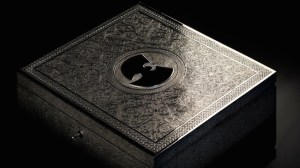
Artists Pushing the (Current) Limits of Physical and Digital Distribution to Get Heard
A couple of days ago, I was talking to someone about the upcoming deluxe re-release of the Tragically Hip’s Fully Completely.
“Did you know that when this album was first released, people lined up outside record stores on Monday night so they could be among the first to buy the album when the clock ticked past midnight?” I asked.
“Really?” said this (much younger) person. “Kinda like what people have been doing for iPhones, right?”
Exactly. Back then, the only “digital” in anyone’s lives meant the clock radio next to the bed. Listening to music on your own terms meant acquiring a physical copy of it–and that meant shelling out cash at the record store. Sure, you could get a buddy to tape it for you on cassette–this was still a few years before you could burn a CD–but those homemade copies sounded like crap. But when MP3s hit the mainstream later in the decade, the midnight record release sales became a thing of the past.
Actually, the idea of physical record releases at any time of the day, night or week became…quaint. With the Internet, you could suddenly get virtually any song you wanted whenever you wanted it, either by legal or illegal means. And since then, sales of CDs have been in a death spiral. Margins on the sale of recorded music have shrunk to almost nothing. We’re a long way from when Michael Jackson could command $3 from the wholesale price of every CD sold.
So how can an artist get fans to possess the physical manifestations of their music?
1. Bonus content on or with CDs.
What can you include with a CD that can’t be ripped and shared digitally? Video material, for one. Sure, you can torrent this stuff but it’s just so much more convenient to just get the disc. Japanese and South Korean artists include things like concert tickets and other non-downloadable offers with their discs and works like a charm. Then again, there are all kinds of cultural and economic reasons why those tactics work in those countries and not others.
2. Vinyl
Who would have thought that vinyl would have ever seen this kind of resurrection? The whole idea behind acquiring vinyl is because is a very specific type of representation of an artist’s work. Vinyl sales are still a drop in the bucket when compared to the overall market, but at least it’s seeing growth.
3. Deluxe re-releases
Wait until you see this Hip package (due November 16). If you’re a fan, you’ll want one, too.
In all probability, though, we’re racing towards the end of physical product as a viable means of making money. What about co-opting various digital strategies? The surprise release (cf. U2, Beyonce) seems to work pretty well. And Thom Yorke did okay by releasing an album through BitTorrent (although the paid version was immediately pirated and made available through–you guessed it–BitTorrent).
Here are two more looks at what’s going on in music these days. The first is from NBC and the second is from the Toronto Star.



